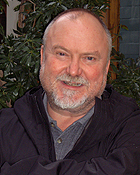Manitoba Excellence in Sustainability Awards 2010
- BUILD – Action on Climate Change, Air Quality and Energy Efficiency Award
- The Brandon Neighbourhood Renewal Corporation – Honourable Mention
- Diversity Food Services – Education for Sustainability Award
- Fresh Option Organic Delivery – Outstanding Achievement in Sustainability Award
Credit Union Central of Canada
- Duane Nicol – Winner of the ‘Be the Voice’ 2010 Contest
Manitoba Co-operative Association Awards 2010
- David Kerr – Cooperative Merit Award
- Evan Bownes – Youth Leadership Award
The Manitoba Excellence in Sustainability Awards 2010
The Manitoba Excellence in Sustainability Awards honour people, projects and ideas that successfully turn the province’s principles and guidelines of sustainable development into concrete and lasting achievements. On November 25, four CCEDNet members and partners were acknowledged and celebrated for their contributions to building stronger, more sustainable communities.
Building Urban Industries for Local Development, Inc. (BUILD)
 BUILD, a member of and nominated by CCEDNet, was presented with the Action on Climate Change, Air Quality and Energy Efficiency Award for its work in providing energy retrofits in lower income housing, and for improving overall socio-economic well-being by providing supportive training and employment opportunities for low-income individuals.
BUILD, a member of and nominated by CCEDNet, was presented with the Action on Climate Change, Air Quality and Energy Efficiency Award for its work in providing energy retrofits in lower income housing, and for improving overall socio-economic well-being by providing supportive training and employment opportunities for low-income individuals.
The Brandon Neighbourhood Renewal Corporation
 The BNRC, also a CCEDNet member, received Honourable Mention for making measurable improvements in reducing greenhouse gases and increasing energy efficiency through its Brandon Energy Efficiency Program (BEEP) and the Community Led Emission Reduction (CLER) pilot project.
The BNRC, also a CCEDNet member, received Honourable Mention for making measurable improvements in reducing greenhouse gases and increasing energy efficiency through its Brandon Energy Efficiency Program (BEEP) and the Community Led Emission Reduction (CLER) pilot project.
![]() Diversity Food Services was nominated by CCEDNet, and is partly owned by SEED Winnipeg, a CCEDNet member. Diversity received the Education for Sustainability Award for its work in training and employing inner-city residents, and its committment to using locally sourced, organic, and fair-trade ingredients in their nutritious and affordable menu.
Diversity Food Services was nominated by CCEDNet, and is partly owned by SEED Winnipeg, a CCEDNet member. Diversity received the Education for Sustainability Award for its work in training and employing inner-city residents, and its committment to using locally sourced, organic, and fair-trade ingredients in their nutritious and affordable menu.
Fresh Option Organic Delivery (FOOD)
 FOOD received the Outstanding Achievement in Sustainability Award for working with local producers to strengthen Manitoba’s organic market and increase the sustainability of our food system. CCEDNet has proudly collaborated with FOOD on the Farm to Cafeteria Working Group, and other food policy initiatives.
FOOD received the Outstanding Achievement in Sustainability Award for working with local producers to strengthen Manitoba’s organic market and increase the sustainability of our food system. CCEDNet has proudly collaborated with FOOD on the Farm to Cafeteria Working Group, and other food policy initiatives.
Credit Union Central of Canada – Be the Voice Contest
For this year’s Be the Voice Contest, the National Young Leaders Committee challenged credit union leaders under 40 to submit their ideas on the next innovation opportunity in banking for the Canadian Credit Union System.
Duane Nicol

 Duane Nicol is manager of corporate social responsibility at Assiniboine Credit Union, Deputy Mayor of Selkirk, and a CCEDNet member. His “radically simple” idea to make credit unions more convenient and flexible for their members has earned him the top prize in this year’s national Be the Voice Contest.
Duane Nicol is manager of corporate social responsibility at Assiniboine Credit Union, Deputy Mayor of Selkirk, and a CCEDNet member. His “radically simple” idea to make credit unions more convenient and flexible for their members has earned him the top prize in this year’s national Be the Voice Contest.
Click here to read his winning submission.
Manitoba Co-operative Association Awards
The Manitoba co-op movement annually recognizes individuals and organizations that have made significant contributions to the promotion of cooperative values and to the development and success of cooperatives serving Manitoba, Canada and internationally. This year, the following CCEDNet members were acknowledged at the 21st MCA Awards Gala in October.
David Kerr
 David Kerr was a co-recipient of this year’s Cooperative Merit Award for his lifelong commitment to co-operative development. David had an illustrious career with the Province of Manitoba, and now works as an independent
David Kerr was a co-recipient of this year’s Cooperative Merit Award for his lifelong commitment to co-operative development. David had an illustrious career with the Province of Manitoba, and now works as an independent
cooperative developer and is a member of the Cooperative Community Strategy working group on the creation of a more supportive environment for the establishment and ongoing operation of cooperatives.
Evan Bownes
 Evan Bowness is a sociology graduate student at the University of Manitoba and President of the South Osborne Urban Community Cooperative. He was the recipient of this year’s Manitoba Cooperative Association Youth Leadership Award for his work raising awareness and providing programming that helps to connect community members to the food that they eat. The South Osborne UCC currently runs a local food buying club, a community conversation series, an intergenerational gardening project and fruit and garden share programs.
Evan Bowness is a sociology graduate student at the University of Manitoba and President of the South Osborne Urban Community Cooperative. He was the recipient of this year’s Manitoba Cooperative Association Youth Leadership Award for his work raising awareness and providing programming that helps to connect community members to the food that they eat. The South Osborne UCC currently runs a local food buying club, a community conversation series, an intergenerational gardening project and fruit and garden share programs.



 Since 1977, Mike Lewis has founded and managed a number of organizations that have succeeded each other, all of which have been integrally involved in community economic development, community resource management, development finance and the Social Economy. He is a well-known author, having authored or co-authored 13 books and a large number of reports and chapters, as well as over 60 articles in Making Waves, Canada’s CED quarterly and several in other publications. He is also the editor of Making Waves. Selections of his writing have been translated into German, French, Spanish, Swedish and Japanese. He is editor of the successor to Making Waves being launched this fall – i-4 (Inspire, Innovate, Invent, Incite)
Since 1977, Mike Lewis has founded and managed a number of organizations that have succeeded each other, all of which have been integrally involved in community economic development, community resource management, development finance and the Social Economy. He is a well-known author, having authored or co-authored 13 books and a large number of reports and chapters, as well as over 60 articles in Making Waves, Canada’s CED quarterly and several in other publications. He is also the editor of Making Waves. Selections of his writing have been translated into German, French, Spanish, Swedish and Japanese. He is editor of the successor to Making Waves being launched this fall – i-4 (Inspire, Innovate, Invent, Incite) Émanuèle Lapierre-Fortin is an MSc candidate in Rural Planning & Development at the University of Guelph. She is a Transition Towns Trainer and has been actively involved as a participant and researcher with Transition Guelph. She has been awarded the Social Economy Student Network Student Researcher of the Month award in October 2009, has collaborated with the Mid-Western Ontario Regional Green Jobs Strategy on a paper exploring the roles of community economic development (CED) organizations in green entreprise development and has presented on the theme of Local Food, CED and Reskilling in Transition Towns at the Association for Non-Profit and Social Economy Research conference.
Émanuèle Lapierre-Fortin is an MSc candidate in Rural Planning & Development at the University of Guelph. She is a Transition Towns Trainer and has been actively involved as a participant and researcher with Transition Guelph. She has been awarded the Social Economy Student Network Student Researcher of the Month award in October 2009, has collaborated with the Mid-Western Ontario Regional Green Jobs Strategy on a paper exploring the roles of community economic development (CED) organizations in green entreprise development and has presented on the theme of Local Food, CED and Reskilling in Transition Towns at the Association for Non-Profit and Social Economy Research conference. Rupert Downing is the Executive Director of the Community Social Planning Council in Victoria BC, Co-director for the Canadian Social Economy Research Hub and the former ED of the Community Economic Development Network. The Network is a national member-based NGO committed to supporting community economic development and building Canada’s Social Economy, with offices in Victoria, Winnipeg, Toronto, and Victoriaville supporting the work of thousands of community based organizations and other stakeholders in every province and territory. The Network is committed to reducing unemployment, poverty and social disadvantage in Canada by supporting the work of grass roots community development organizations through public education, policy development, research, practitioner development and peer learning.
Rupert Downing is the Executive Director of the Community Social Planning Council in Victoria BC, Co-director for the Canadian Social Economy Research Hub and the former ED of the Community Economic Development Network. The Network is a national member-based NGO committed to supporting community economic development and building Canada’s Social Economy, with offices in Victoria, Winnipeg, Toronto, and Victoriaville supporting the work of thousands of community based organizations and other stakeholders in every province and territory. The Network is committed to reducing unemployment, poverty and social disadvantage in Canada by supporting the work of grass roots community development organizations through public education, policy development, research, practitioner development and peer learning.